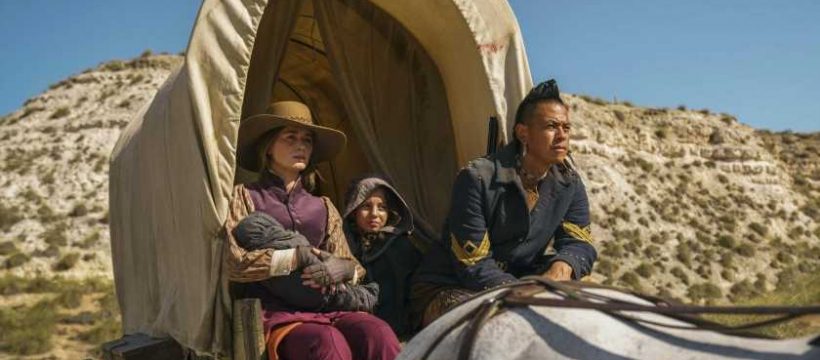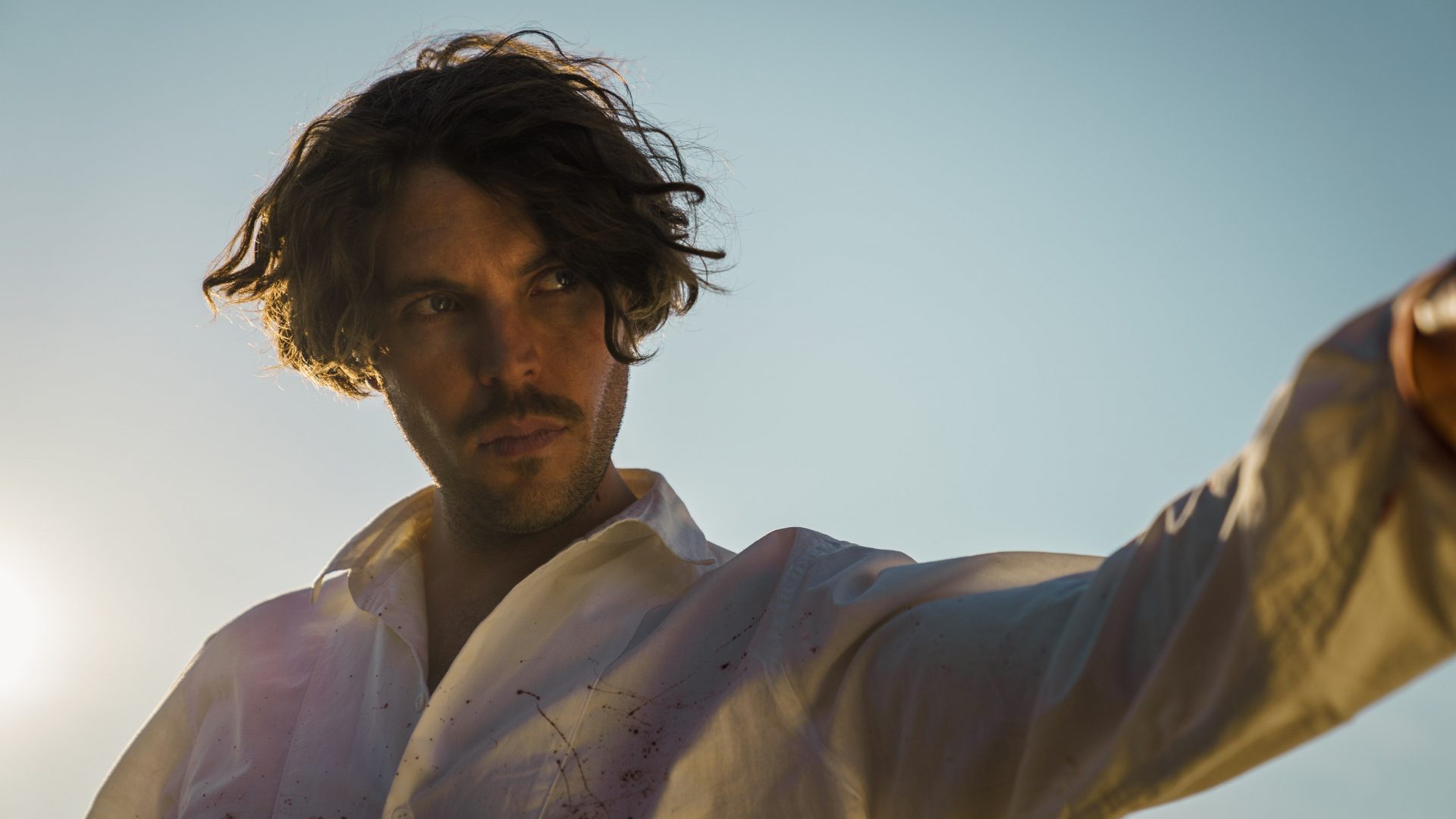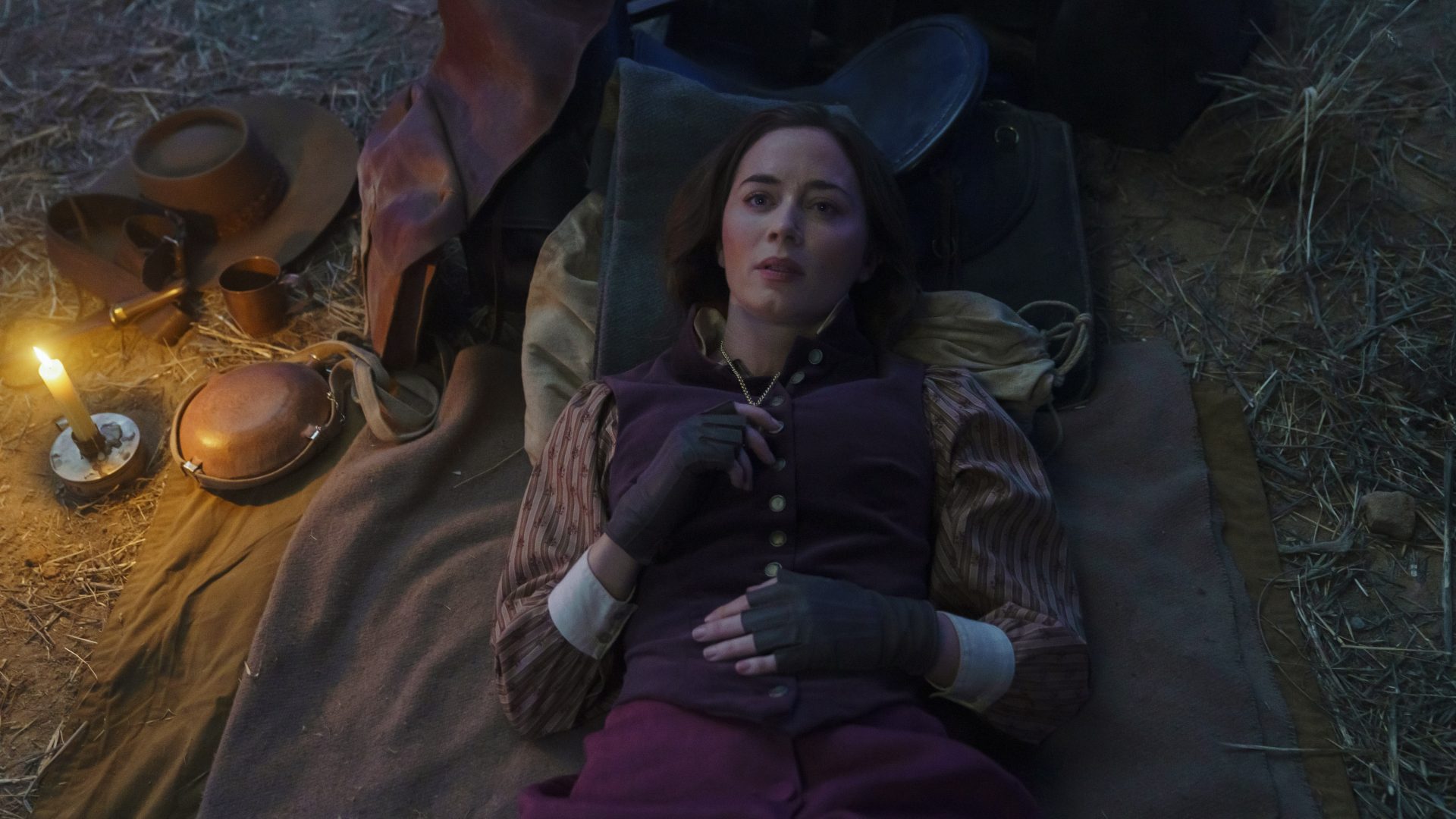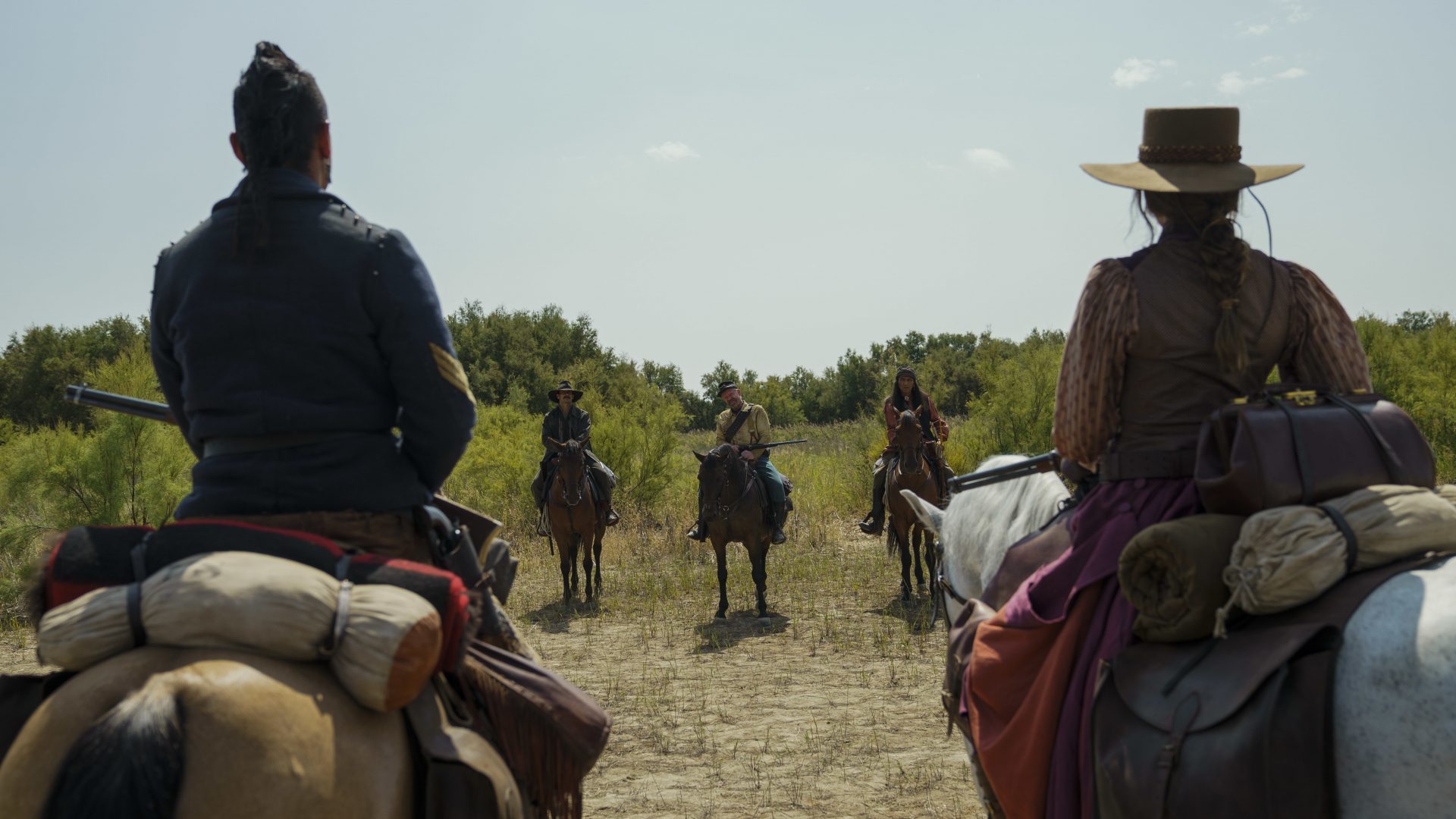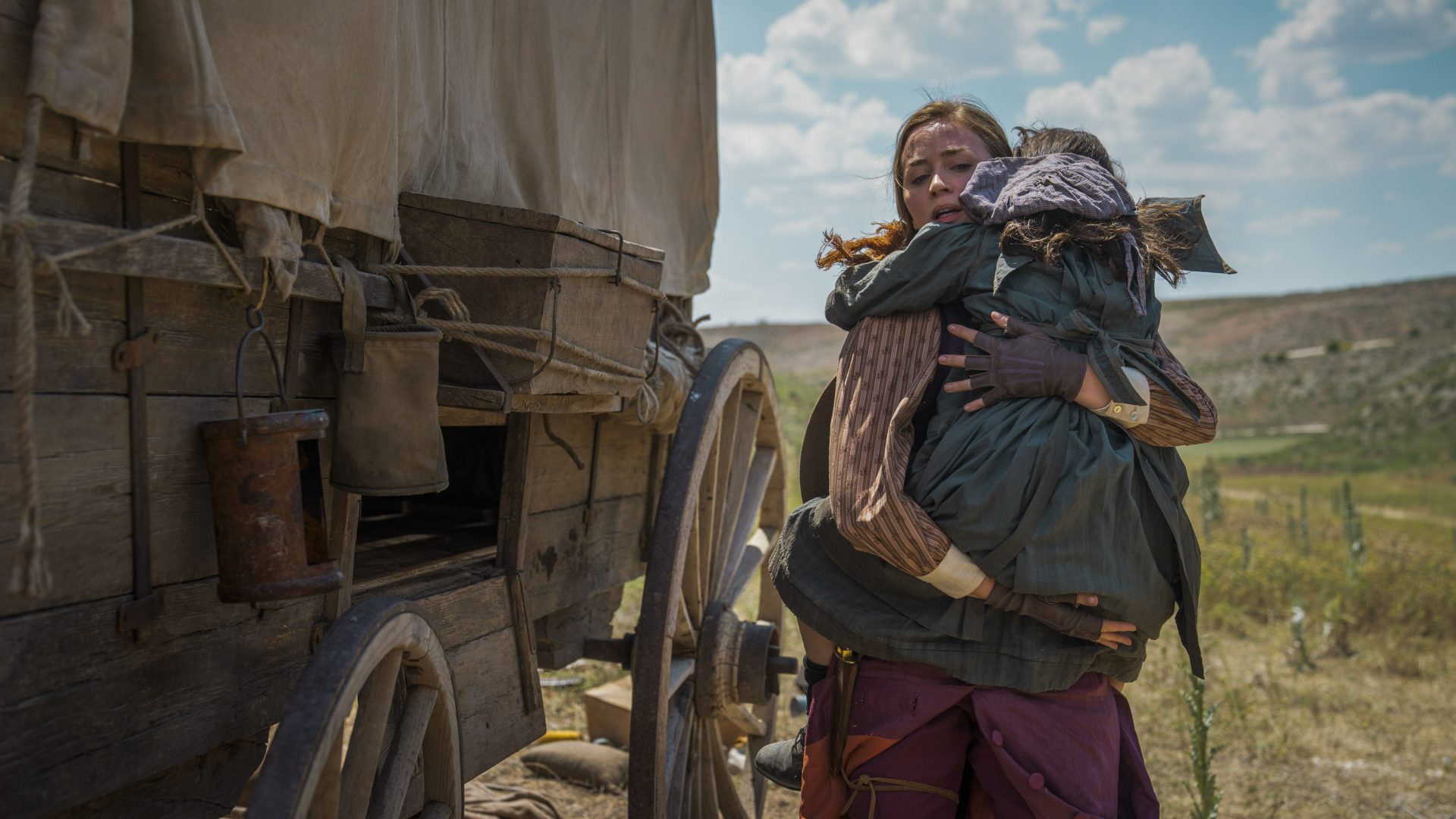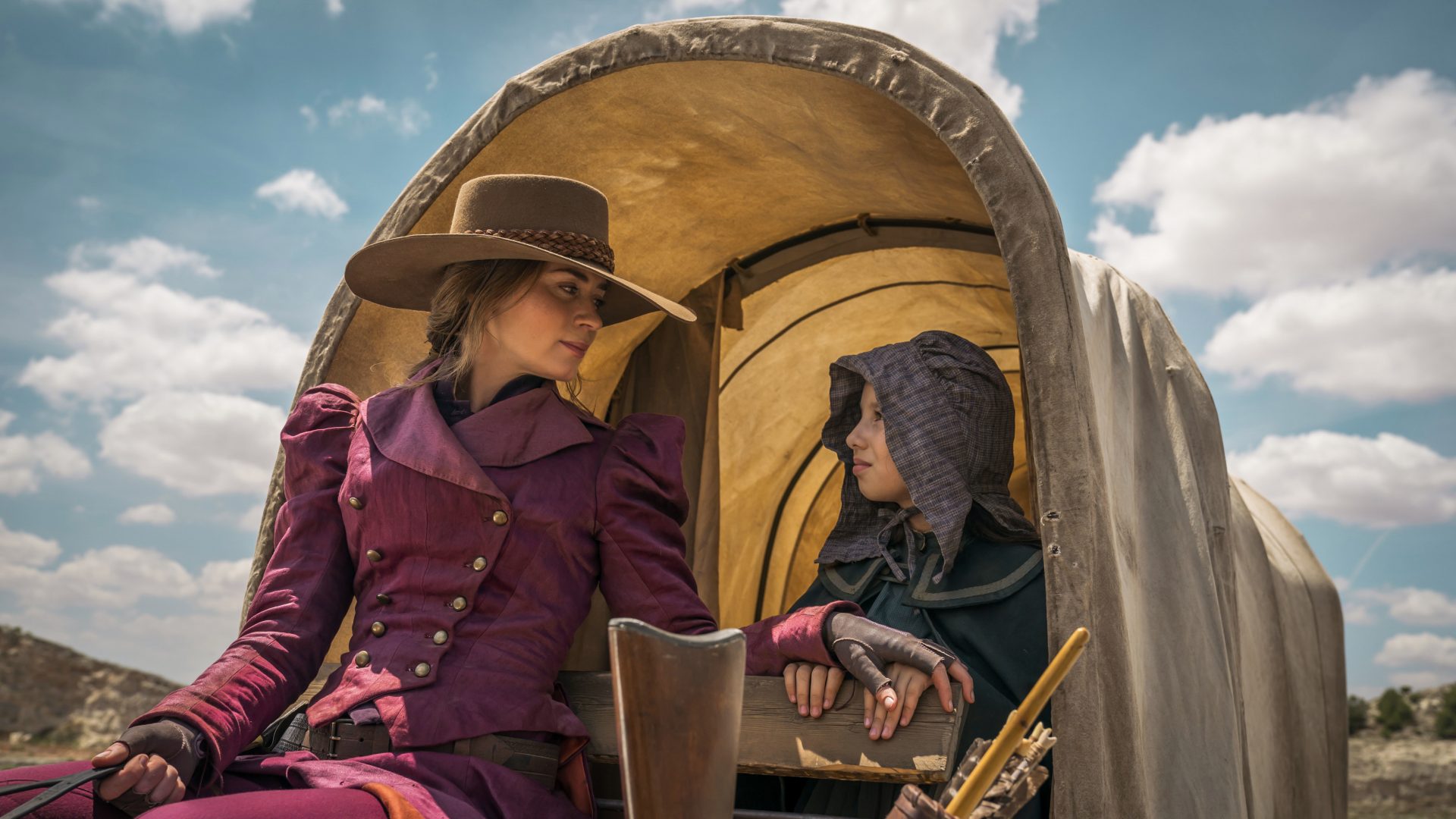In a gritty second episode of The English, Cornelia and Eli continue their journey and come across unwelcome figures and unsettling discoveries.
Warning: this article contains spoilers for the second episode of BBC Two’s The English.
Following on from the brutal first episode of the BBC western series, the latest leg of the journey opens in Caine County, Powder River.
In an unexpected visual, we come across a group of men playing cricket in bright white uniforms that offer a harsh contrast against the blistering Wyoming sun.
One of the men, Thomas Trafford (Tom Hughes), is quickly rushed away by a fellow on horseback as he receives some unknown and unsettling news. Soon after, Trafford and two of his men ride down to the nearby town of Hoxem to confront the sheriff, Robert Marshall (Stephen Rea).
When the sheriff misnames the younger man, Trafford informs him that he should be referred to as the “Honourable”. Upon the matter of titles, the sheriff calmly tells him:
“You have to earn them in his country.”
And thus, this episode begins. How do we define who we are? Who gives us our titles? And, more pressingly, can we move on from them?
You may also like
The English episode 1 recap: how the BBC series plays on every woman’s fears (and darkest revenge fantasies)
At least a month’s ride away, Cornelia (Emily Blunt) and Eli (Chaske Spencer) are camping by candlelight in rural Kansas. The night sky ripples above them, the stars milky waves leaking into the blackness.
Cornelia prods Eli for conversation, and he tells her about a message that came to him in a dream. She tells him that her dreams are wild in nature, to which he replies that an elder could help her understand her dreams, though they are all dead now.
He tells her that the elders are above them in the stars – the Milky Way – which they call the path of the dead.
As Cornelia gazes up at the constellations, at the path of the dead, she softly remarks: “It’s busy tonight.”
The next day, we see three men on horseback interrogating a foreigner who has wandered off alone. The group offers to let him go, but it’s a cruel ploy. As the man runs back towards his carriage, an arrow rips through his chest, causing him to collapse among the wildflowers.
As Eli and Cornelia continue on, they talk about their past, including Cornelia’s skill with a bow and arrow, it having been a fashionable sport in England.
When she asks him if he could teach her to follow the stars, he asks her if her son died from violence or illness. The question shocks her, and when she asks why, he tells her that violence provides a quick path to the stars, illness a slow one.
They soon suspect they are being followed and discover that the three men from earlier are on their path.
Eli recognises one of the men, whom he fought alongside during the war and is introduced to the ringleader, Captain Clegg. They encourage Eli to join them. It’s a way for him to earn money, which he evidently needs; Clegg tells him he is ineligible for his army pension on account of “the colour of his skin”.
He may be a “war hero”, but this is clearly in name only, given that Eli receives no reward or compensation for his bravery. Title without ownership. And when Clegg demands Cornelia’s money-packed baggage, the groups are left in a stand-off.
Cornelia, in a burst of characteristic boldness, shoots the horse as instructed. But when her gun jams, Eli lets the man, the sole survivor, run.
The Pawnee man only gets past the billowy reeds until he collapses in the ground, an arrow in his heart.
Cornelia’s arrow.
It’s a powerful gesture, for Cornelia to do what Eli cannot bring himself to do. Once again, in a moment that echoes the first episode, she cries. Not because she is weak, but because she is deeply moved and affected by what is required of her on her journey.
When Cornelia and Eli go to find the foreign man’s carriage, they discover the body of his pregnant wife and their trembling, hidden younger daughter.
As Cornelia embraces the girl tightly, Eli emerges with the newly baby in his arms.
When they later take rest, he tells her to breastfeed the child. She adamantly refuses. She is a mother, she says, but she could not be their mother.
Her maternal instincts are obvious, but her unwillingness to take up the mantle of motherhood again is strong. Not when she still has work to do to avenge her own son.
Eli tells her about his time in the American Cavalry, and Cornelia talks about her father, who was also a soldier.
There is a feeling that both of these travellers are unsettled with their past. What’s more, it seems as though there is something else beneath both of their stubborn exteriors. But somehow, it no longer matters. That it does not define them.
Whoever they once were — a mother, a war hero — is rendered meaningless. Now, everything in their beings can only be diluted down to their singular goals. For Eli, a few acres of land. For Cornelia, revenge. This is all that matters.
Between our goals, our purpose, and our exteriors that the outside world bases their judgements upon, what truly defines us? When it comes to Cornelia and Eli, their titles hardly seem to be their sole meaning. Especially when Cornelia has travelled across the world in the unpredictable quest for vengeance and Eli, despite all hesitations, has chosen to help her.
For them, it is their actions that strikes the most true.
They then double back on their path, finding a married couple who take them into their home. The husband, who is also Native American, tells Eli that the greatest enemy to an Indian is their past.
“We have to turn our back on it if we want any hope to survive,” he says.
The young orphan girl then enters the room, speaking German, and the couple reveal that she must have come from a group of travelling Mennonites, who rode south a few days prior.
You may also like
BBC’s The English: watch Emily Blunt in the new trailer for the thrilling Western drama
Cornelia and Eli debate about whether to travel back even further to return the children to their clan.
Finally, Eli unveils some of his haunting past. He tells Cornelia that he once travelled that same road with his pregnant wife 15 years ago. Sadly, she passed away, though he was able to deliver his baby daughter, who succumbed to fever two years later. It was then that the army came and took him away to war.
“I been here before,” he tells her. “And I ain’t going back.”
At the episode’s end, we see Cornelia settling up to prepare for her journey in which she intends to take the children back to their group. Perhaps somewhat naively, she leaves her money behind with the husband and wife.
Calling back to her knowledge of star signs and her declaration of being a Scorpio, he tells her: “Scorpions are dangerous to themselves. Look so hard to kill its prey, it ends up stinging itself.”
Finally, he gifts her a compass. As she hurtles forward, the dust kicking up behind the carriage and creating a billowing shadow against the morning sun, Eli calls to her, chanting something unknown.
It’s a bloody, taut episode that brings a glimpse into the past for Cornelia and Eli. Although it concludes with their parting ways, it is impossible to believe that the separation will be for long.
And whilst the brutish savagery of those who occupy the path on which the pair have to walk still remains from the first episode, this time we are given a chance to consider who they are. Mother, war hero, traveller, local, vengeful, seeker… these are merely some of the titles that befall the duo, all of which are the things that both drive them forward and hold them back.
Cornelia can no longer be a mother or daughter now, not really. And, according to the man that takes them in, Eli can no longer adhere to his own past, either. It seems as if they can only succeed if they focus on the goal at hand.
Although titles might be earned in the unforgiving scorch of the West, perhaps it is shedding them that is the key to survival.
The English airs on Thursdays at 9pm on BBC Two.
Images: BBC
Source: Read Full Article
